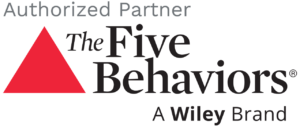What We Do
Leadership Coaching
Leadership coaching is defined as a process used to build a leader’s capability to achieve short and/or long-term goals. The coaching process has defined steps and outcomes. The outcomes vary. Some of our clients have focused on increasing emotional intelligence, some needed to improve their communication skills, while others struggled with how to prioritize and delegate. In our current environment, stress management and building resilience have become a growing need.
Organizations often think about coaching as being solely for leaders who are struggling. While coaching is especially beneficial for struggling leaders, coaching is also valuable for new leaders. Leaders who are transitioning from individual contributors to team leaders, and from technical/clinical experts to strategic thinkers, often need help too.

How does your organization support struggling leaders?
How does your organization support new leaders?
Talent Development

Many organizations underappreciate the value of “home-grown” talent. Some other organizations underappreciate the effort it takes to do this well. The benefits of “growing-your-own” are many. Developing the potential of your people is a tremendous morale booster. Talent Development requires a system that allows the organization to identify those who have high potential for a bigger role. Once identified, then comes the process of assessing, tailoring development plans. Retaining top talent is a long-term effort. The TD system should also give the organization a clear indication for how to spend valuable development resources. The annual performance review alone is not sufficient to accomplish this task.
What is your Talent Development Strategy?
How do you determine who is included or excluded from your Talent Development Strategy?

Succession Planning
Succession planning is a roadmap, where the destination is, long-term organizational success. Where Talent Development is mostly about the individual, Succession Planning is mostly about the organization. When are new leaders chosen? More often than not, the answer is: “Just before they are needed”. How are new leaders chosen? More often than not, the answer is: and “By gut feeling”. Sustainable succession planning requires an infrastructure. We teach our clients how to use Talent Development as a stepping stone to building a succession planning infrastructure.

Who are the next leaders in your organization?
Are they prepared to lead?
Change Management

Given the pace of change in the world around us, to be successful, organizations are constantly changing. They change their structure; they change where they are primarily located; they change the processes for how they do work; they change who does the process. More than 2/3 of all organizational changes don’t deliver the expect benefits. There is a common belief that this is because employees don’t like change. We don’t subscribe to that belief. It has been our experience that it’s not the change that causes problems; it’s the reaction to the change. We have helped our client organizations figure out how organizational reactions to change are within their control.
What was the outcome of your last organizational change?
Did you get all of the benefits you were expecting?
Employee Engagement
Engaging employees and retaining talent does not just happen. It takes a strategy, a People Strategy. Your organization has a business strategy that focuses on getting and keeping a healthy bottom line. You should also have a people strategy that focuses on getting and keeping the staff and employees who do all of the tasks necessary to meet patients and customer needs, keep the doors open and lights on. Employee engagement also means understanding your organizational culture, including issues of diversity, equity and inclusion.

What price are you paying for disengaged staff?
What is your People Strategy?
Building High Performance Teams

Having engaged staff is a start, but it is not enough to build a high-performance team. A team is when a group of individuals are all pulling in the same direction in a coordinated and complimentary way. For a team to accomplish this, they need clear direction and objectives from their leadership. Team development happens when the group makes steady progress through distinct stages. Most teams get bogged down and stuck in one stage or another. They never really become a team. The results they produce are adequate but not sustainable. To become a high performing team, there are some very specific issues that need to be resolved and some very specific questions that need to be asked and answered. Teams that resolve the issues and answer the questions have shown demonstrable reduction in effort, improved productivity and sustainability.
Do your teams know what stage of development they are in?
Do they know how to move to the next stage and ultimately, become high performing?

Communication Skills Training
Verbal and written communication is a key component of successful leadership and successful interpersonal work relationships. Knowing what to say, when to say it, and especially, how to say it is a skill. We have worked with hundreds of leaders to improve their 1:1 and team communication skills. We have also worked with hundreds of front-line physicians to improve their physician-patient communication skills.

Are you or someone in your organization, “Saying it, but no one seems to be hearing it?”
Are you or someone in your organization, “Not saying it, because you don’t know what to say or how to say It?”
We have helped our clients answer these and many other questions. We would like to have the opportunity to help you too. Contact us, we would be happy to discuss if, what we offer, fits what you need.
Our Clients

We work across all levels of healthcare leadership – first line supervisor to C-Suite executives. Our experience has taught us that one level of leadership does not operate disconnected from the other levels.
- Hospital Administrators
- Medical Group Leaders
- Physicians
- Nurses
- Allied Medical Professionals
Get in touch with us today, we can help you!
Do you need an answer to a leadership question that you have been struggling with? Great leadership is not about having all of the answers – it is about knowing who can help you find the right answers.
Email Us
Maurice@mauricedunnphd.com
Dannielle@mauricedunnphd.com
Call Us
916.622.0491
